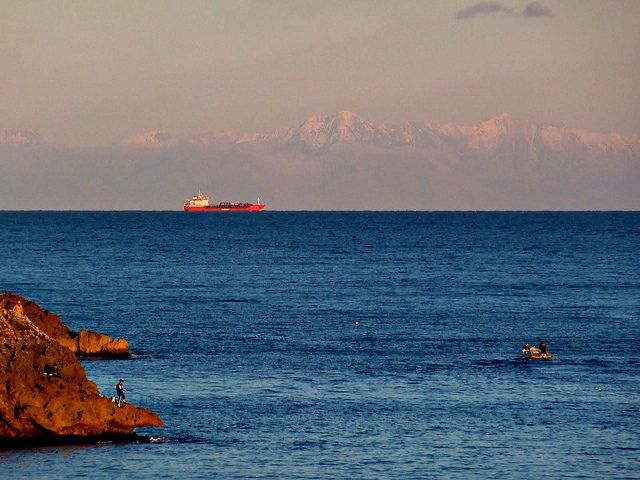
According to scientific assessments tabled in the Italian parliament, the marine resources in the Adriatic Sea are in a “dramatic and constant decline due to excessive fishing.”
Rossella Muroni and Antonio Lombardo from Let’s ECO presented a parliamentary question to the Chamber, urging Minister of Agriculture Stefano Patuanelli to take action and create a Restricted Fishing Area (FRA) in the Strait of Otranto.
The Strait connects the Adriatic Sea with the Ionian Sea and also separates Italy and Albania. It is less than 72 km wide.
The parliamentary question noted that fishing in the Adriatic is at the highest rate globally. Italian fishermen fish at a higher rate than their Chinese, Spanish, Japanese, and South Korean counterparts.
“The Italian fleet is essentially concentrated in the Mediterranean and particularly the Adriatic, which in proportion to its size, is the most exploited region in the world.”
They noted that out of the 47 types of fish that are commercial of interest, only six are not over-exploited.
In 2017, the General Fisheries Commission for the Mediterranean (CGPM) established a Fishing Restriction Area in the Fossa di Pomo, in the center of the Adriatic Sea. Since then, Let’s ECO said a surprising recovery in the numbers of scampi and the return of vulnerable species such as sharks.
They added that in 2018, a proposal was presented to the CGPM to establish a second FRA in the Strait. Species of interest include pink shrimp, hake, Norweigan lobster, red shrimp, black catfish, and various sensitive habitats that provide refuge from prey and allow breeding. These include white coral, deep water sponges, and rare bamboo coral gardens, considered some of the most important in the entire Mediterranean.
Despite appeals, nothing was done.
They asked that Patuanelli listen to the appeal of scientists and take action to support the establishment of the FRA of the Strait of Otranto “to promote the recovery of overexploited resources, to protect sensitive species, and to ensure the future of fishing.”
The European Union has called several parts of the Strait “sites of Community interest” due to their environmental importance. The prevalence of heavy marine traffic causes issues with pollution.
In 2020 throughout Albania, more than 16,000 tonnes of fish were caught. This was an increase of around 1,000 tonnes from the previous year. Marine fishing accounts for about 4,500 tonnes of that figure, in addition to approximately 420 tonnes from the coastline and coastal lagoons.
The most fished species in Albania is the deepwater rose shrimp, accounting for over 20% of all catches.

